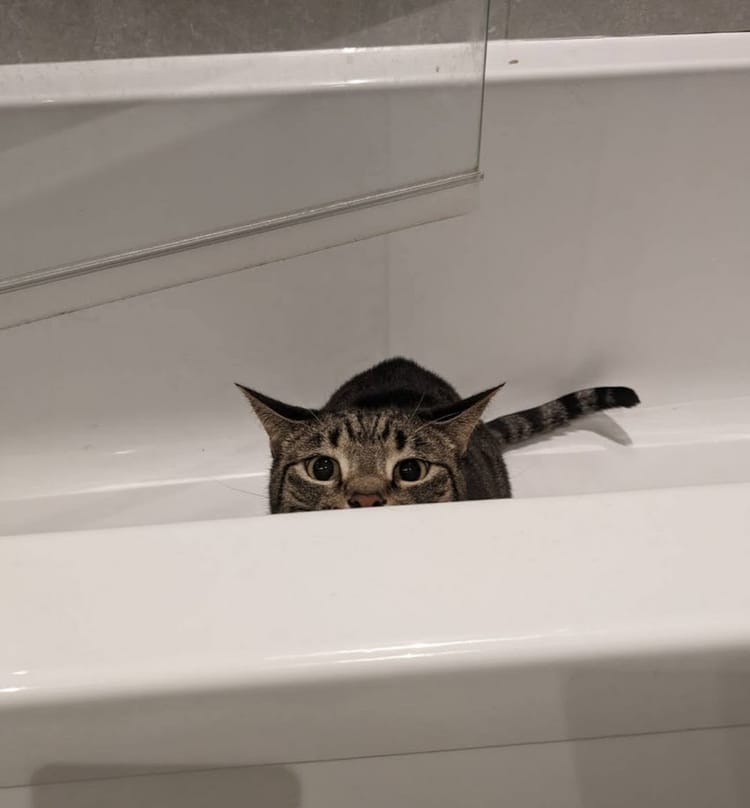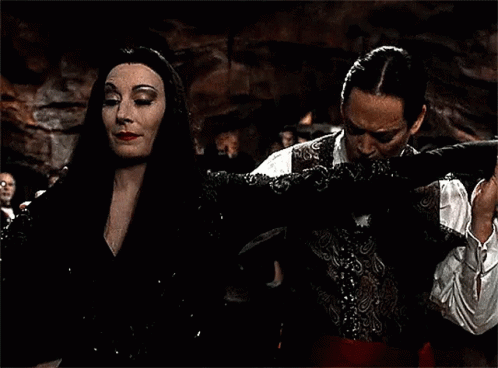Rugby, Course Syllabi, and Billionaire Survivalists

Hello, loves!
I've spent most of the week getting lost down research rabbit holes while working on Snarltooth, including many joyful hours tracing the exact route of the Thames Tideway megasewer and thinking about how one might hypothetically break into it. Why? NO REASON. CARRY ON.
In-between having far too much fun writing my novel, here are five things I've been thinking about this week.
The joy of a good syllabus
When I was doing my undergraduate degree, the literature course everyone wanted to take was called "Sex, from Sappho to Cyber", which involved an examination of spicy scenes in literature from the ancient Greeks all the way to the present. For obvious reasons, this was the most oversubscribed course at the University of Cape Town in 2005. I never managed to get in, being as I was always so tardy about completing registration, but I still remember poring over the syllabus, thinking how lovely it was that the lecturer (the marvellous Dr Jessica Tiffin, if I recall correctly) had thought to map a multi-week conversation that took in both ancient Greek poetry and sexy fanfiction about Saruman from Lord of the Rings.
Done correctly, a course syllabus is a magical document, a roadmap through a strange subject. But, kind of like a roadmap made by your dad, so instead of being like "Turn right on Hill Road, go on 300 metres", it's like "Okay, drive until you see the really wonky tree, the tree that looks like your uncle Gregory, you know the one, then take a left there at the McDonald's that used to be a liquor shop." A syllabus is innately idiosyncratic, personal, the record of someone who's travelled the route themselves many times, and has trodden one potential trail amongst a potentially infinite number.
Take, for instance, the wonderful syllabus for Ethan Hein's course "Musical Borrowing from Plainchant to Sampling". Here is some of the module "Sampling and Remixing":
--
Reading: An Intro to Remixes
Read my blog post, "An Intro to Remixes" (2020), and listen to the audio examples. In particular, compare "Copacabana" by Barry Manilow (1980) to the Reflex Revision by Nicolas Laugier (2017), which only uses audio found in the original multitrack stems. In a short paragraph, answer the following questions: Would you consider these to be the same piece of music? Should Laugier have been required to get Manilow's permission before creating his re-edit? If so, why? If not, why not?
Project: Talking Heads remix
Download the acapella to "Burning Down The House" by Talking Heads. Create a blank DAW session and set the tempo to 103 bpm. Drag the acapella onto a new audio track. (The acapella begins with almost eight bars of silence, so don't be alarmed if you click Play and don't hear anything right away.) You will then create a new instrumental backing track for this song. You can use whatever loops, samples, MIDI, or live instruments that you like. You can also edit and process the vocal as much as you like. The song is in G but you may get interesting results from reharmonizing it. You can also simply use drums/percussion and not worry about harmony at all.
--
Isn't this syllabus a delight? It's so easy to understand, just by reading the curriculum, what the major debates in the discipline are, and what skills are required for its mastery. Even if you don't do the readings, have the debates or complete the projects, the curriculum itself tells you so much about the landscape of the topic.
Maps of learning like this are often produced by universities, but they don't have to exist only in formal education contexts. I used to belong to a reading group called "Feminist Fight Flub" in Cape Town where we co-developed our own curriculum around feminist theory. It's become one of my favourite questions to ask the autodidacts in my life, people who've developed deep expertise in some niche topic like tree identification or the sex lives of corrupt wizards: if you were designing a beginner's course on this topic, what would you include in it?
The Atlantic published an interesting piece a few months ago about how the syllabus is increasingly degenerating into a bureaucratic cover-your-ass-legally bit of paperwork, but I still believe that if done well, they're lovely things.
Related: it's been wonderful to see Survive the Century, the choosable-path game/story I co-created with a group of climate change experts, appearing on syllabi, such as this one at the University of Georgetown.

Have you seen any brilliant syllabi out in the wild recently? Please send them to me! I'm starting a collection.
The teenage body as a source of horror
I had a lovely, wide-ranging conversation with Jen Thorpe on her Living While Feminist podcast, where we discussed the innate body horror of being a teenage girl, media narratives about teenage girl friendship in the 90s, and what I learned about myself in moving to the other side of the world. Listen here.
Naomi Alderman's The Future

Do you sometimes wish you could watch a Hunger Games-style survival reality show where the contestants are the CEOs of SpaceX, Amazon, and Facebook? Unfortunately you can't, but you can do the next best thing: read Naomi Alderman's dazzling new novel The Future, which imagines that the (lightly-fictionalised) billionaires who run the world end up stranded on a desert island together after the crash of civilization.
In addition to that enormously fun central premise, it's a nuanced, brilliant reflecti0n on what the tech takeover is doing to our world, and what might be required to resist.
“You and I,” he said, “have helped something happen in this world. A huge wash of information. Unprecedented. The only thing it’s like is the Gutenberg print revolution and that was followed by four hundred years of bloody war. Suddenly, people were exposed to so much more information than ever before. They had no systems to process it or to tell truth from lies. They were overwhelmed. That’s where we are. And humanity doesn’t have time for four hundred years of bloody war right now. There are so many emergencies to deal with.”
Interwoven with deep Biblical scholarship and full of layered, gutsy characters (not the billionaires), it's a hopeful romp through an insane future. It's out on 7 November - if you loved Naomi Alderman's breakthrough gender novel The Power, don't miss it!
The London Metro Memory game
I have lost an embarrassing number of hours this week to the London Metro Memory game, a challenge to try to name as many of the stops in London's tube/overground/DLR network as you can. I'm up to 40%, which I don't think is too bad after having lived here for two years!

Rugby and ... birds?
Look, there probably aren't too many other people in the specific Venn diagram intersection between "mega hype for the Rugby World Cup Final tonight" and "obsessed with identifying birds", but if you're there with me, The Birding Life podcast just released an episode of the "Bird World Cup" where they pit five green-and-gold South African birds against five black-and-white New Zealand birds. Yes, this is the dorkiest shit I've ever told you about, I'm sorry.

BONUS: more reads about parenting, alloparenting and nonparenting
Thank you, all of you who sent me recommendations for essays and books about parenting, nonparenting and alloparenting after last week's newsletter! I especially enjoyed Anne Helen Peterson's helpful, wise essay "How to Kid-Proof Your Friendship" and Leslie Jamison's essay about pregnancy and eating disorders, "The Quickening: A Story of Two Births". I've compiled the full list here, if you're interested in reading more on the topic.
Wishing you curiosity, hope for the future, and fun celebrating the 100% definite win of the Springboks tonight! 🇿🇦🏉🎉
Sam






Member discussion